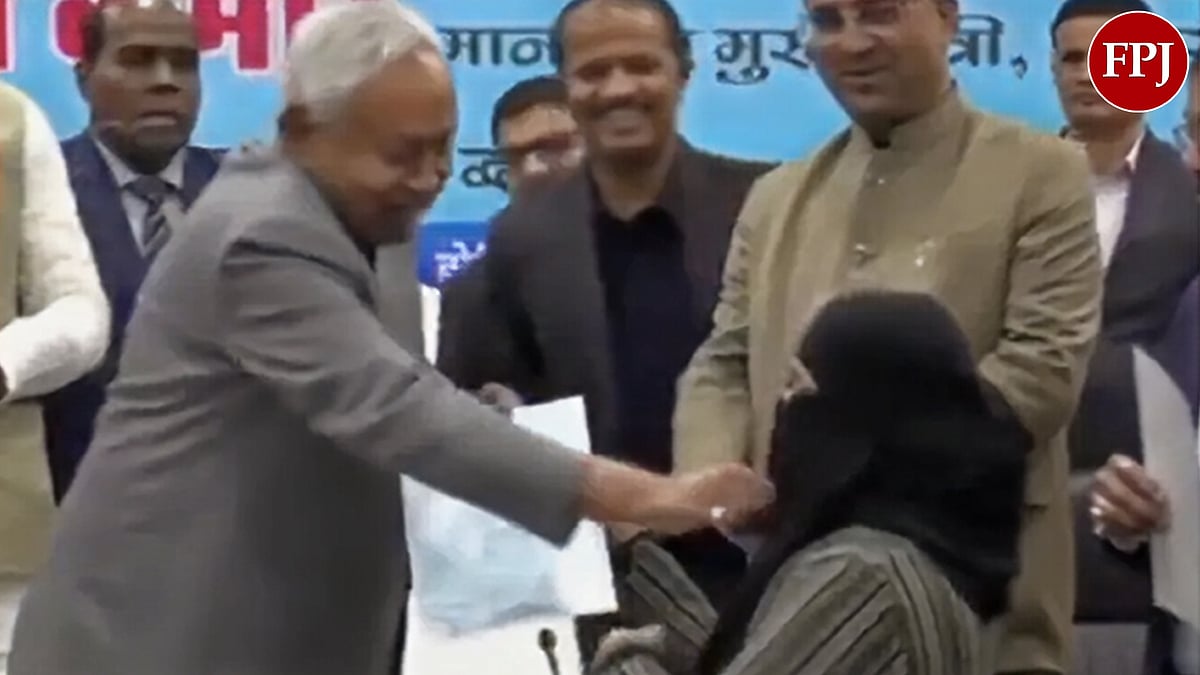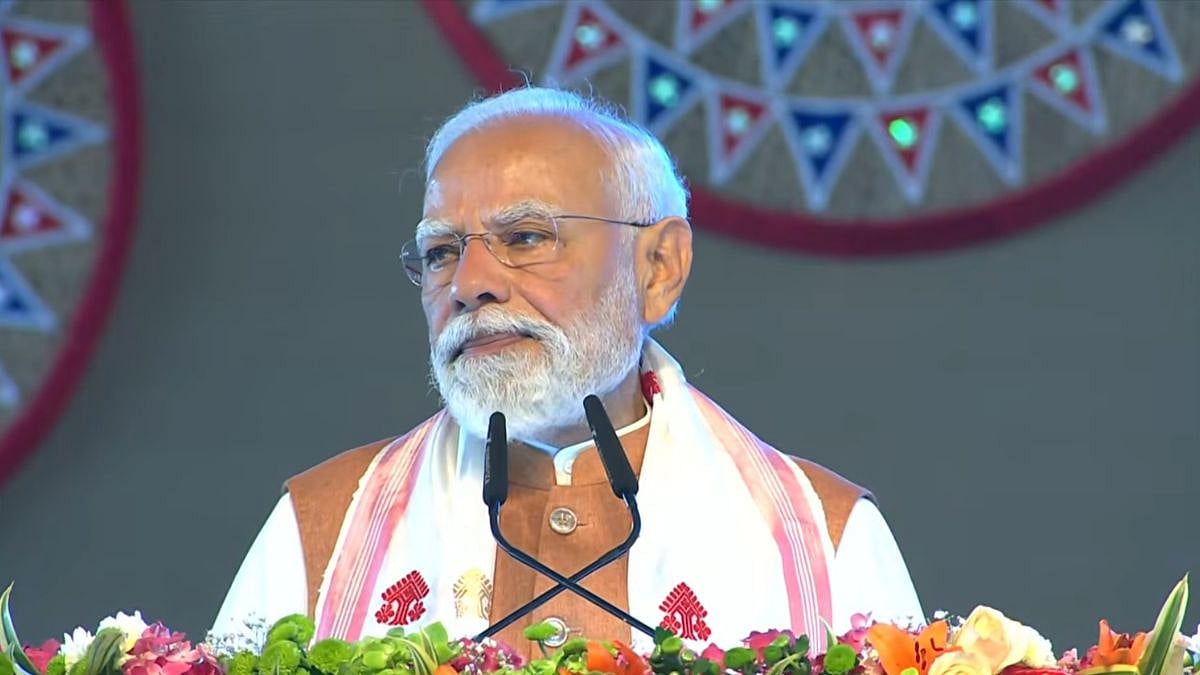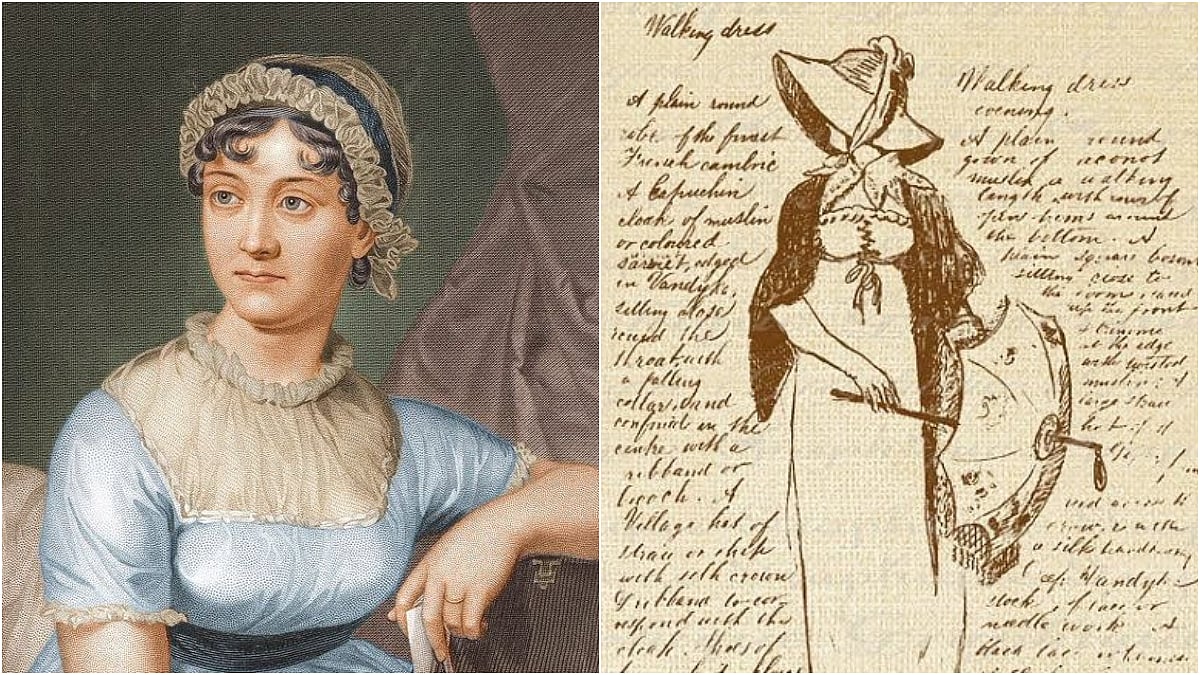Secularism is an integral facet of the Bangladeshi and Indian Constitutions which both guarantee non-citizens and minorities their right to life and liberty. This is vital in view of the attacks on the minority Hindus in Bangladesh, which killed at least six persons and caused untold damage to property in that country during the recent Durga Puja celebrations there.
The riots erupted due to rumours of blasphemy being spread to cause friction between the majority and minority communities, using religion as a flashpoint. For religion is always used by scoundrels as a roundel in the guise of nationalism, to promote irrationalism. Bangladesh’s equivalent of the right to life enshrined in Article 21 of the Indian Constitution is their Article 32 which declares “Everyone has the right to life, liberty and security of their person.”
Similar Articles
There is hardly any difference between the two Articles because we were one nation before Partition created two in 1947, which split into three in 1971. This disproved the adage that Hindus and Muslims are two separate nations. For politicians like Jinnah use religion as an opiate for their gullible followers to promise them salvation, leading to their damnation.
In both Bangladesh and India, the right to life and liberty for minorities and deprived groups like Hindus in Bangladesh or migrants and Dalits within India is more of an academic debate in courtrooms and seminars than rigidly enforced in both countries. Leaders of both nations mouth platitudes after communal riots to assuage the outrage of families whose members have been butchered in pogroms.
This is why we must view the attacks on the Hindu minority in Bangladesh with the same trepidation as when our Muslim brothers are attacked in India. Unlike the modern version of secularism in India which declares Hindutva to be a way of life, secularism in Bangladesh is stated to be ‘neutrality of religion’. The greatness of Hinduism eclipses Hindutva just as the greatness of Islam eclipses the more radical Wahhabism.
Article 41 of the Bangladesh Constitution permits proselytising or conversions from one religion to another subject to law, public order, and morality, perhaps copied from our own Article 25, which curtails the right of our citizens to practise, profess and propagate the religion of their choice to the provisos of public order, morality and health.
Secularism dropped, restored
Although Bangladesh emerged as a secular country when it was created in 1971, in 1977, secularism was removed from the constitution by a martial law directive during the military dictatorship of Zia-ur-Rahman. In 1988, the Bangladesh Parliament declared Islam as the state religion during the presidency of Hussain Muhammad Ershad.
After the restoration of parliamentary democracy in 1990, the Bangladesh Nationalist Party (BNP) and the Awami League governments retained Islam as the state religion. But in 2010, the Bangladesh Supreme Court declared that removing secularism from the Constitution in 1977 was illegal because it was done by an unconstitutional martial law regime.
The Bangladesh Supreme Court ordered that secularism should be replaced in the Bangladesh constitution, thereby emulating Indira Gandhi’s 42nd amendment to the Preamble of our own Constitution, introducing the words ‘socialist, secular’ and the appendage ‘integrity’ to the word ‘unity’ of the nation. Whether India and Bangladesh are secular countries in reality is the subject of an academic debate.
Religion no glue
What is relevant is that religion cannot be the glue which binds diverse peoples together anywhere in the world. The late Justice Verma’s bracketing of Hindutva with the greatness of Hinduism in 1995, which declared that being a ‘way of life’ within India, there was no problem with religion being invoked during elections, gave a tremendous fillip to resurgent political forces which wanted to exploit religion.
The late judge lamented his words were allegedly being twisted out-of-context. The 44th Chief Justice of India, J S Khehar, who declared that what religion he professed was his private affair, negated the concept of religion being exploited for political gain. Political analysts have said spurts of anti-Hindu violence in Bangladesh appear strategically-timed, with terrorists killing Hindus in Kashmir.
Kashmir killings
Nearly all of those killed were those who came from impoverished states to eke out their livelihood in Kashmir, making a mockery of their right to life and liberty guaranteed by the Indian state under Article 21. Just as the killing of Hindus in Bangladesh made a mockery of that country’s Article 32 which in India at least, is the soul of our fundamental rights.
After all, it is this Article 32 of our own Constitution which guarantees all citizens the right to approach the Indian Supreme Court to enforce our fundamental rights. But today, our Article 32 has been reduced to a chimera, with 80 per cent of Special Leave Petitions dismissed on Mondays and Fridays with one-line orders called non-speaking orders because they do not give reasons for the dismissal. For these petitions do not raise questions of law of national importance and clog the docket of the apex court.
There can be no doubt that the anti-Hindu riots in Bangladesh is an aberration rather than the norm because the secular, linguistic identity of the Bengali language has been the foundation stone of Bangladesh, which professes to be a secular Muslim-majority nation. Just as India professes to be an avowedly secular Hindu-majority nation.
Fanatical forces
But a powerful Islamist strand, a leftover of pre-Partition Muslim politics in this subcontinent has survived through organisations such as the Jamaat-e-Islami in alliance with military dictators and pro-Pakistan forces to incite discord in Bangladesh, reducing the right to life and liberty of the Hindu minority in that country to a charade.
The rise of the Al-Qaeda and the ISIS groups within Islam has given an impetus to fanatical forces within Bangladesh, just as it has in Pakistan because religion has always been used as an opiate of the masses to slaughter minorities. This is why Karl Marx was right when he said religion is the opium of the masses. And this is why Chinese toddlers are taught to shun religion and look up to scientists as their idols.
And so, despite over 30 judgments of our Supreme Court declaring the right to life and liberty guaranteed by Article 21 to be an integral part of the basic structure of our Constitution, the right to life and liberty guaranteed by the Bangladesh Constitution under Article 32 and upheld by their Supreme Court is chimerical. This is because when religion is mixed with politics, the right to life throughout this subcontinent stands negated.
The writer holds a PhD in law and is a senior journalist-cum-advocate of the Bombay high court









